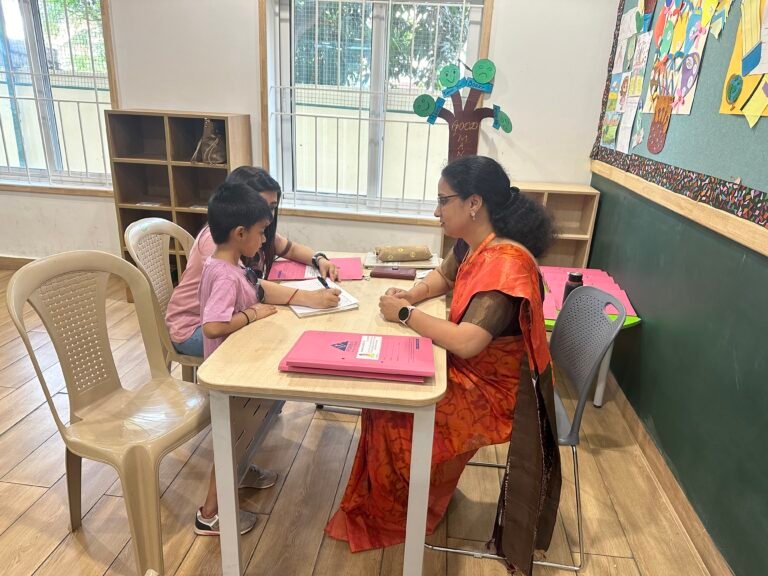Why Parent-Teacher Meetings Are Imperative for a Child’s Academic Success
In the fast-paced world of education, where students are balancing academics, extracurricular activities, and personal growth, the collaboration between parents and teachers is more important than ever. Parent-teacher meetings provide a valuable opportunity for both sides to come together, ensuring that children are supported in all areas of their development. This partnership helps create a strong foundation for the child’s success, both academically and emotionally. The importance of this collaboration is especially clear in the best schools in Bangalore, where the combined efforts of parents, teachers, and students work together to foster an environment that develop growth and encourages success.

1. Clear Communication Enhances Learning
Parent-teacher meetings provide a structured platform for open, honest communication. Teachers can share insights about a child’s academic progress, classroom behaviour, strengths, and areas that need improvement. At the same time, parents can share relevant information about the child’s home environment, learning habits, or emotional challenges. This exchange helps both align their efforts to support the child more effectively.
2. Early Intervention Prevents Bigger Problems
Parent-teacher meetings provide a critical opportunity for teachers to identify early warning signs of academic struggles, learning difficulties, or behaviour issues. Spotting these challenges early enables timely intervention, whether through additional academic support, counselling, or adjusting teaching approaches. Addressing these concerns, they can significantly improve a student’s academic performance and overall well-being. By taking active steps, both teachers and parents can help students overcome obstacles and stay on track, ultimately enhancing their chances for success in school.
3. Strengthening the Support System
When children see that their parents and teachers are in good touch, it reinforces the importance of education. They are more likely to feel supported, motivated, and accountable. This sense of shared responsibility between home and school creates a stable environment to students’ success.
4. Personalized Learning Becomes Possible
Every child is unique, and their learning needs change. Parent-teacher meetings allow teachers to their approach based on feedback from home. For example, if a student shows signs of stress while studying at home, teachers can adjust their workload or offer alternative learning strategies. Such personalized attention boosts both confidence and academic performance.
5. Encouraging Parental Involvement
Studies consistently show students to perform better, when their parents are actively involved in their education. Parent-teacher meetings play a crucial role in this by giving parents the opportunity to take an active part in their child’s academic journey. From helping with assignments to gaining a better understanding of school policies and curriculum expectations, it allows parents to stay informed and engaged in their child’s learning process. This involvement helps students stay motivated and supported both at school and at home.
6. Building Trust Between Parents and Teachers
A strong parent-teacher relationship is built on trust and mutual respect. Regular meetings develop this trust, helping to dissolve misunderstandings and build a partnership that benefits the child. When both sides feel heard and valued, collaboration becomes smoother and more productive.
Parent-teacher meetings are the key moments of connection that shape a child’s educational journey. By attending and engaging in, parents demonstrate their commitment to their child’s success, while teachers gain valuable insights to better support their students. Many of the Best high schools in Thirumenahalli, Bangalore prioritizes parent-teacher interaction as a core part of their educational philosophy. It’s this kind of partnership that encourage students to achieve both academic excellence and emotional well-being.
